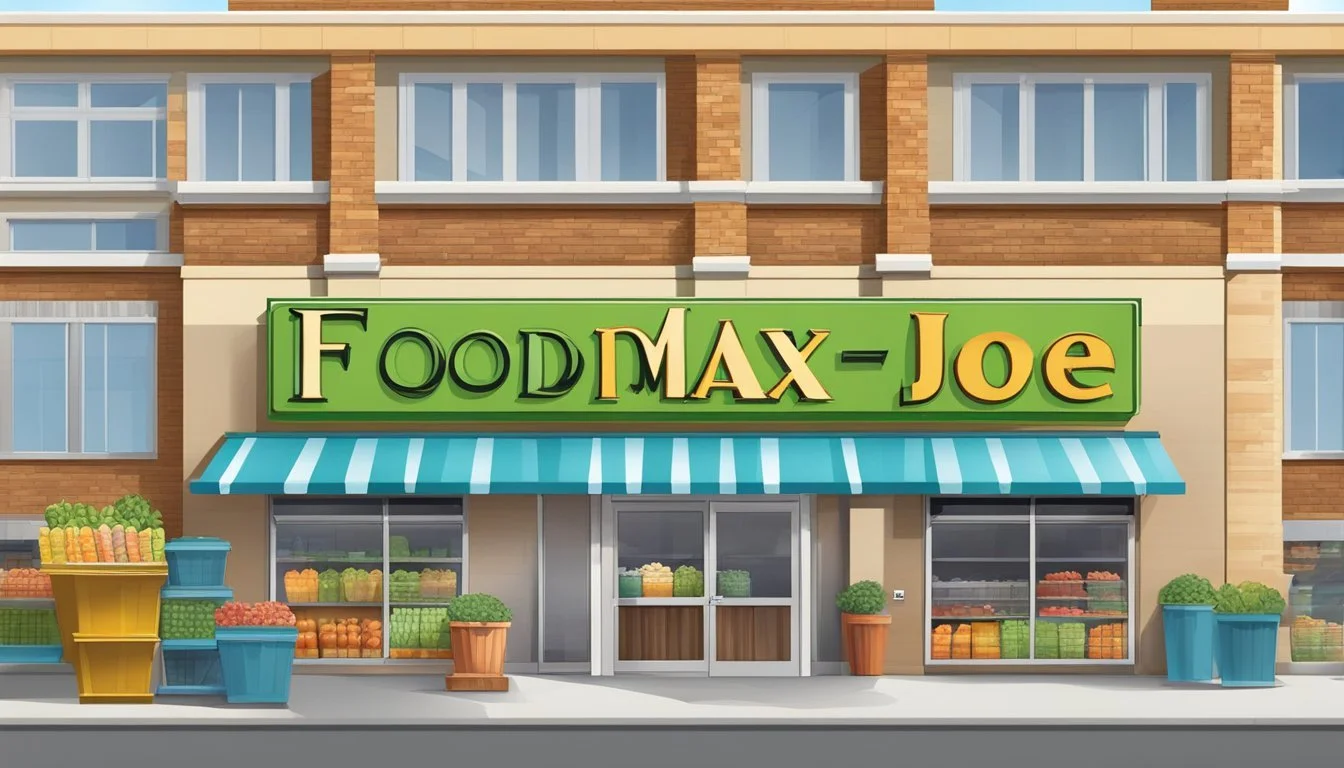Is FoodMaxx Cheaper Than Trader Joe's?
Comparing grocery prices at two popular chains
Many shoppers are constantly on the lookout for ways to save money on groceries. Two popular options in the Bay Area are FoodMaxx and Trader Joe's. Both stores have loyal customer bases, but which one offers better prices?
Based on price comparisons, FoodMaxx is generally cheaper than Trader Joe's. Studies have shown that FoodMaxx's prices are typically around 21% lower than the average supermarket, while Trader Joe's prices are about 10-20% lower. This difference can result in significant savings for regular grocery shoppers.
FoodMaxx is known for its no-frills approach, focusing on providing basic groceries at low prices. Trader Joe's, on the other hand, offers a unique selection of products, including many store-brand items, which contributes to its pricing strategy. While Trader Joe's may have better deals on certain specialty items, FoodMaxx tends to offer lower prices across a wider range of everyday grocery items.
Overview of Supermarket Landscape
The supermarket landscape features diverse chains catering to different consumer preferences. Price-conscious shoppers and those seeking unique products have distinct options in the market.
Understanding Trader Joe's Appeal
Trader Joe's has cultivated a devoted following with its distinctive offerings and competitive pricing. The chain focuses on private-label products, allowing for cost control and unique selections. Trader Joe's stores are typically smaller than traditional supermarkets, creating a more intimate shopping experience.
Their product lineup includes many organic and gourmet items at lower prices than specialty stores. This combination of quality and affordability has helped Trader Joe's build a loyal customer base.
The company's limited-time seasonal items create a sense of excitement and urgency among shoppers. Trader Joe's employees, known for their friendly demeanor, contribute to the store's positive atmosphere.
FoodMaxx Market Position
FoodMaxx positions itself as a low-cost grocery option, appealing to budget-conscious consumers. The chain operates on a warehouse-style model, reducing overhead costs to offer lower prices. FoodMaxx stores often feature a no-frills layout and focus on bulk purchases.
Their product selection includes both national brands and store-brand items. FoodMaxx emphasizes value, offering larger package sizes and multi-packs to provide savings. The chain's pricing strategy aims to attract price-sensitive shoppers who prioritize cost over ambiance or specialty products.
FoodMaxx stores typically stock a wide range of everyday essentials, catering to families and households seeking to stretch their grocery budgets. The chain's market position revolves around providing affordable options without compromising on product quality.
Comparative Analysis of Pricing
FoodMaxx and Trader Joe's offer distinct pricing strategies for grocery items. A detailed examination reveals notable differences in costs across various product categories.
Methodology of Price Comparison
Price comparisons between FoodMaxx and Trader Joe's involve selecting a range of common grocery items. Researchers typically choose products from different categories like produce, dairy, meat, and pantry staples. They record prices at multiple store locations over several weeks to account for regional variations and temporary sales.
Some studies use a standardized shopping list of 40-50 items to ensure consistency. Others focus on specific product types or brands available at both retailers. Data collection often includes noting quantities, brands, and any applicable discounts or loyalty program savings.
Grocery Items Price Breakdown
FoodMaxx generally offers lower prices on many basic grocery items compared to Trader Joe's. A typical basket of goods at FoodMaxx can be around 20% cheaper than average grocery stores.
Trader Joe's, while not the lowest-priced option, still provides competitive pricing. Their private label products often cost less than name brands at traditional supermarkets. For example:
Cereal: Trader Joe's house brands are frequently priced lower than major cereal brands.
Coffee: Both stores offer competitive prices, with FoodMaxx sometimes edging out on bulk purchases.
Maple syrup: Trader Joe's organic maple syrup is often priced lower than comparable products at other stores.
Produce prices can fluctuate, but FoodMaxx typically maintains lower costs on fruits and vegetables. Trader Joe's may have better deals on specialty or organic produce items.
Assessment of Product Ranges
FoodMaxx and Trader Joe's offer distinct product selections that cater to different customer needs and preferences. Their private label offerings, produce selections, and specialty food options vary significantly in quality, variety, and pricing.
Private Label Products
FoodMaxx focuses on budget-friendly store brand items across many categories. These products often come in larger package sizes to appeal to families and bulk shoppers. Quality can be hit-or-miss, but prices are consistently low.
Trader Joe's, in contrast, is known for its extensive line of unique private label products. These items often match or exceed the quality of national brands while maintaining competitive pricing. Trader Joe's private label includes many organic, vegan, and gluten-free options.
Both stores offer their own branded versions of staples like organic 2% milk, though Trader Joe's typically has more variety in flavors and packaging sizes.
Availability of Produce
FoodMaxx provides a wide selection of conventional produce at low prices. The focus is on affordability rather than organic or specialty items. Produce quality can vary, but prices are generally cheaper than other supermarkets.
Trader Joe's offers a curated selection of both conventional and organic produce. While the variety may be more limited than at FoodMaxx, Trader Joe's often has unique seasonal items and pre-packaged fresh options like salad kits and cut fruit.
Both stores stock popular items, but Trader Joe's tends to have more consistent quality and a higher percentage of organic options.
Specialty Food Options
FoodMaxx has a limited selection of specialty foods, focusing mainly on mainstream products and some ethnic foods popular in their local markets. Vegan and gluten-free options are available but may be limited to a few brands or items.
Trader Joe's excels in specialty food offerings. They stock a wide array of international cuisines, vegan alternatives, and gluten-free products. Unique items like their French Vanilla Ice Cream often become customer favorites.
Trader Joe's regularly introduces new and innovative products, while FoodMaxx tends to stick with more traditional offerings. This difference is particularly noticeable in categories like snacks, frozen meals, and specialty beverages.
Examination of Store Brands and Quality
Store brands play a crucial role in grocery pricing and quality. Both Trader Joe's and FoodMaxx offer their own branded products, which can significantly impact overall value for shoppers.
Quality of Trader Joe's Store Brand
Trader Joe's is renowned for its high-quality store brand products. TJ's branded items often match or surpass national brands in taste and quality. Their flour tortillas, for instance, are praised for their freshness and authentic flavor. TJ's cream cheese is another standout, offering a rich, creamy texture at a competitive price point.
Many customers appreciate Trader Joe's commitment to using natural ingredients and avoiding artificial preservatives in their store brand items. Their English muffins, for example, are made with simple, recognizable ingredients. This focus on quality has helped Trader Joe's build a loyal customer base.
Comparison with FoodMaxx Brands
FoodMaxx also offers store brand products, though they may not have the same reputation for quality as Trader Joe's. FoodMaxx brands typically prioritize affordability over premium ingredients or unique flavors. Their store brand items often provide a more budget-friendly option for shoppers.
While FoodMaxx's store brand products may not always match the quality of Trader Joe's, they can still offer good value for basic staples. FoodMaxx's flour tortillas and cream cheese, for instance, are generally reliable options for cost-conscious consumers. However, shoppers may notice differences in taste or texture compared to national brands or Trader Joe's equivalents.
FoodMaxx's emphasis on low prices can make their store brand products an attractive choice for families on tight budgets. The trade-off between quality and cost is a key consideration when comparing FoodMaxx and Trader Joe's store brands.
Consumer Savings Strategies
Smart shopping tactics can significantly reduce grocery expenses. Savvy consumers employ various methods to maximize their savings at stores like FoodMaxx and Trader Joe's.
Leveraging Coupons and Discounts
Coupons remain a powerful tool for cutting grocery bills. Many stores offer digital coupons through their apps or websites, making it easier than ever to save. FoodMaxx frequently provides manufacturer coupons and store-specific deals. Trader Joe's, while not known for coupons, offers consistent low prices on many items.
Shoppers can stack savings by combining store sales with manufacturer coupons when available. Some stores double coupons up to a certain value, multiplying potential discounts. Loyalty programs often provide additional savings or points that translate to future discounts.
Timing purchases around sales cycles can lead to substantial savings. Many grocery items follow predictable discount patterns. Keeping a price book helps track these cycles and identify the best times to stock up.
Evaluating Bulk Purchasing
Buying in bulk can yield significant savings, but requires careful consideration. Larger quantities often come with lower per-unit prices. This strategy works well for non-perishable items and frequently used products.
However, bulk buying isn't always cost-effective. Perishable goods may spoil before use, negating any savings. Storage space limitations can also make bulk purchases impractical for some households.
Comparing unit prices is crucial when evaluating bulk options. Many stores display unit prices on shelf tags, making it easier to compare different sizes and brands. This helps shoppers determine if the bulk option truly offers savings.
Some stores, like FoodMaxx, specialize in bulk offerings. Trader Joe's, with its smaller store format, focuses more on unique products in standard sizes. Shoppers should assess their household needs and storage capabilities when deciding between bulk and regular-sized items.
Additional Considerations for Shoppers
Price isn't the only factor when comparing FoodMaxx and Trader Joe's. Store atmosphere, service quality, and product availability also play key roles in the shopping experience.
The Role of Store Ambiance
FoodMaxx typically offers a no-frills shopping environment focused on value. The stores often have a warehouse-like feel with simple displays and minimal decor. This approach helps keep costs down.
Trader Joe's, in contrast, cultivates a unique, friendly atmosphere. The stores feature Hawaiian-shirt-clad staff and quirky product names. Many locations display local artwork and use hand-drawn signs.
The ambiance can affect shopping enjoyment and time spent in-store. Some shoppers prefer FoodMaxx's straightforward layout for quick trips. Others enjoy browsing Trader Joe's themed displays and seasonal items.
Importance of Customer Service
FoodMaxx generally provides basic customer service with a focus on efficiency. Staff are available to assist but may be less abundant on the floor compared to other chains.
Trader Joe's is known for its attentive and knowledgeable staff. Employees often offer product recommendations and cooking tips. The chain invests heavily in staff training to maintain its reputation for friendly service.
Good customer service can enhance the shopping experience and help customers discover new products. It may also affect how quickly issues are resolved at checkout or with returns.
Product Freshness and Availability
FoodMaxx stocks a wide range of groceries, including fresh produce, meats, and dairy. The selection often includes both name-brand and generic options. Product turnover can be high due to competitive pricing.
Trader Joe's focuses on a curated selection of mostly private-label products. This includes unique items not found elsewhere. The chain is known for its extensive frozen food options and rotating seasonal offerings.
Fresh flowers and an array of cheeses are staples at many Trader Joe's locations. These departments are often smaller or non-existent at FoodMaxx stores.
Product availability can vary between the two chains. FoodMaxx may offer more conventional brands, while Trader Joe's excels in specialty and organic items.
Conclusions and Recommendations
FoodMaxx generally offers lower prices than Trader Joe's for many grocery items. Shoppers seeking significant savings on their supermarket bills may find FoodMaxx to be the more economical choice.
Trader Joe's provides unique, high-quality private label products at competitive prices. However, FoodMaxx's pricing strategy focuses on offering staple items and national brands at steep discounts.
For budget-conscious consumers, FoodMaxx is likely to provide greater overall savings on a typical grocery trip. The store's prices are often 20-25% below average supermarket prices.
Recommendations for maximizing savings:
Compare prices on frequently purchased items at both stores
Take advantage of FoodMaxx's low prices on basics and pantry staples
Shop Trader Joe's for specialty items not found elsewhere
Consider splitting shopping between the two stores based on best prices
Ultimately, the choice between FoodMaxx and Trader Joe's depends on individual preferences for product selection, store atmosphere, and specific grocery needs. Budget-focused shoppers will likely find more consistent savings at FoodMaxx.







